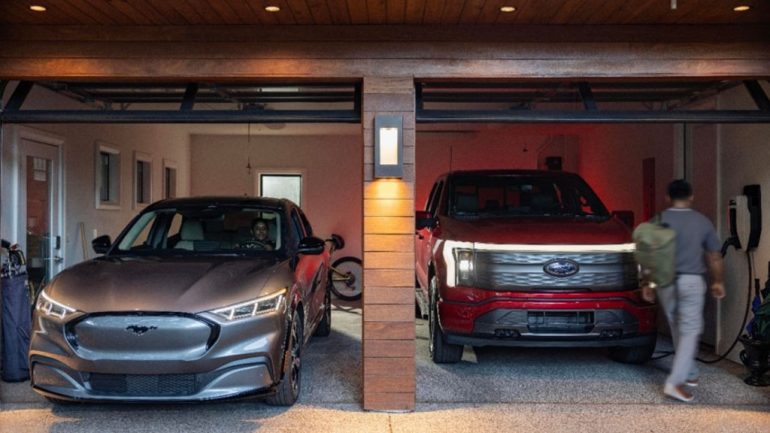
The recent decision by the Biden administration regarding gas engines in the USA has drawn a lot of attention, particularly in the automotive industry. Originally proposed regulations that would have compelled Detroit automakers to curtail the production of gas-guzzling vehicles or face substantial fines have been relaxed, marking a major win for the industry.
This decision, revealed by the Department of Energy, is a response to concerns voiced by automakers regarding their ability to meet the initial proposals for a more aggressive transition to electric vehicles (EVs). These proposals aimed at substantially increasing EV market share by 2032, but automakers argued they were unattainable.
The regulations in question play a vital role in determining fleetwide fuel efficiency standards, with automakers currently benefitting from fuel-economy credits for the electric vehicles they sell. This has allowed them to maintain production and sales of highly profitable gas-powered vehicles like pickups and SUVs while meeting federal standards.
The original proposal, which faced resistance from automakers, sought to drastically reduce the fuel-economy credits assigned to EVs, aiming for a more realistic assessment of their efficiency compared to gasoline-powered vehicles. However, the finalized decision extends the timeline for reducing these credits, providing automakers with additional time to adapt.
The announcement has been met with approval from industry figures, who argue that the earlier proposal would have disincentivized the production of EVs. The impact of these regulations is particularly significant for the Detroit Three automakers, given their reliance on large trucks and SUV sales.
Furthermore, concerns were raised about potential fines that automakers could face for not meeting fuel-economy and Corporate Average Fuel Economy (CAFE) requirements. The revised rules offer more flexibility, allowing automakers to continue selling combustion vehicles, including gas-electric hybrids, until 2030.
The CAFE standard system is a pivotal regulatory mechanism designed to address environmental concerns and promote fuel efficiency within the automotive industry. At its core, this system sets specific targets for vehicle manufacturers to meet in terms of the average fuel economy across their entire fleet.
The way the CAFE standard system works is to incorporate a variety of vehicle types and fuel technologies into its calculations. This flexibility enables manufacturers to balance the fuel efficiency of their lineup, ensuring that even if certain models are less fuel-efficient, they can be offset by others that excel in this aspect. That means Ford can continue to make the F-150 Raptor R and Shelby GT500 as gas guzzlers where they are somewhat offset by vehicles like the Mustang Mach-E and F-150 Lightning EVs.
While the decision has been welcomed by the automotive industry, it has sparked criticism from environmentalists and climate action groups. These groups argue that the original, more stringent proposals were necessary to drive meaningful improvements in overall fleet efficiency and reduce greenhouse gas emissions.
The Biden administration’s decision provides a lifeline for gas engine production in the USA, offering automakers a reprieve from strict regulations while also encouraging a gradual transition towards electric vehicles. However, it remains a subject of debate between industry stakeholders and environmental advocates regarding its long-term implications for the environment and the automotive industry’s future.

Mike Floyd is a finance executive by trade and a car enthusiast at heart. As a CFO with a keen eye for detail and strategy, Mike brings his analytical mindset to the automotive world, uncovering fresh insights and unique perspectives that go beyond the surface. His passion for cars—especially his favorite, the Porsche 911, fuels his contributions to Automotive Addicts, where he blends a love for performance and design with his professional precision. Whether he’s breaking down industry trends or spotlighting emerging innovations, Mike helps keep the site both sharp and forward-thinking.